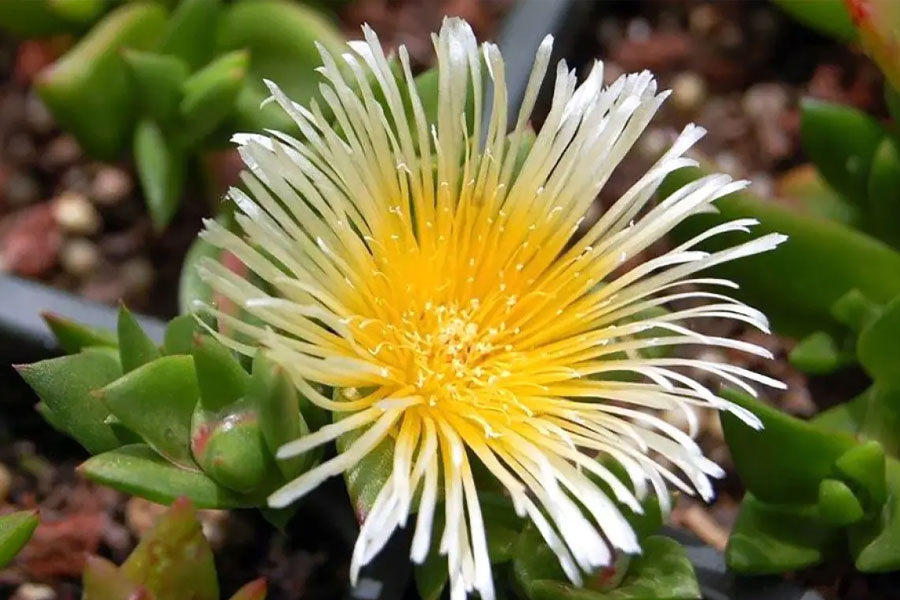Kanna as an antidepressant
In an interesting fMRI study, acute administration of 25 mg of Zembrin, a proprietary preparation of Sceletium tortuosum, attenuated reactivity to fearful faces in the amygdala.
Share This Story, Choose Your Platform!
PRECLINICAL ANTIDEPRESSANT-LIKE EFFECTS
Sceletium tortuosum has been found to have a number of behavioral effects in rodents. Acute intraperitoneal administration of a methanolic extract of Sceletium tortuosum decreased immobility time of rats in the forced swim test, which is taken to be an antidepressant-like effect. Although considered to have an anxiolytic effect, this single administration had no effect on behavior in the elevated plus maze. Nonetheless, daily administration of Sceletium tortuosum for 17 days reduced basal serum levels of corticosterone, as well as dampening the increase of corticosterone in response to restraint. In mice, a low (10 mg/kg) but not high (80 mg/kg) and possibly intoxicating dose of mesembrine alkaloids also decreased immobilization time in the forced swim test. An increasingly used animal model of antidepressant action is the assay of distress vocalization in chicks. Acute administration of extract of Sceletium tortuosum decreased distress vocalization in chicks, which is taken as evidence of an antidepressant-like effect.
HUMAN ANTIDEPRESSANT EFFECTS
There are few studies of effects of Sceletium tortuosum in human subjects. In an interesting fMRI study, acute administration of 25 mg of Zembrin, a proprietary preparation of Sceletium tortuosum, attenuated reactivity to fearful faces in the amygdala. Follow-up connectivity analysis on the emotion-matching task further showed that amygdala-hypothalamus coupling was also reduced. Those results were interpreted as reflecting an anxiolytic dampening of activity in threat circuitry of the human brain. There are no formal clinical studies of Sceletium tortuosum in the treatment of MDD in human subjects. However, several case studies have been reported. In the first case, the patient was suffering from severe depression of four months duration, and was started on 50 mg sceletium daily. A sustained improvement in mood was reported, with a marked decrease in insomnia and generalized anxiety. The sceletium was discontinued after four months of continual use with no signs or symptoms of withdrawal. In the second case, a patient with a personality disorder and dysthymia was started on 50 mg sceletium daily. Within ten days the patient said that her mood had lifted, and she was able to feel more focused, more engaged, and not so socially “distant”. She doubled her dose of sceletium to two 50 mg tablets daily just prior to her exams a month later, and described feeling less anxious and more able to cope with her usual examination anxiety. In the third case, the patient presented with Major Depressive Disorder, with symptoms of depressed mood, increased sleep, overeating, anxiety, psychomotor agitation, and thoughts of death. The patient was started on sceletium, 50 mg in the morning and at lunchtime. Improvement in mood, sleep pattern, and energy were noted the first day. After six weeks of treatment with sceletium, the patient was fully recovered. In what was ostensibly only a pilot study to determine safety and tolerability, subjects received either placebo, 8 mg or 25 mg of extract of Sceletium tortuosum. There were no apparent differences between the three treatments with regard to vital signs, 12-lead ECG, body weight, and physical examination from screening to the end of the three-month treatment period. There were no significant changes observed in hematology or biochemistry parameters between initial screening and the end of the study. Both doses of extract Sceletium tortuosum were well-tolerated. The only notable adverse report was a slight increase in complaints of headache in the higher dosing of Sceletium tortuosum.
This article originally appeared on books.google.com





